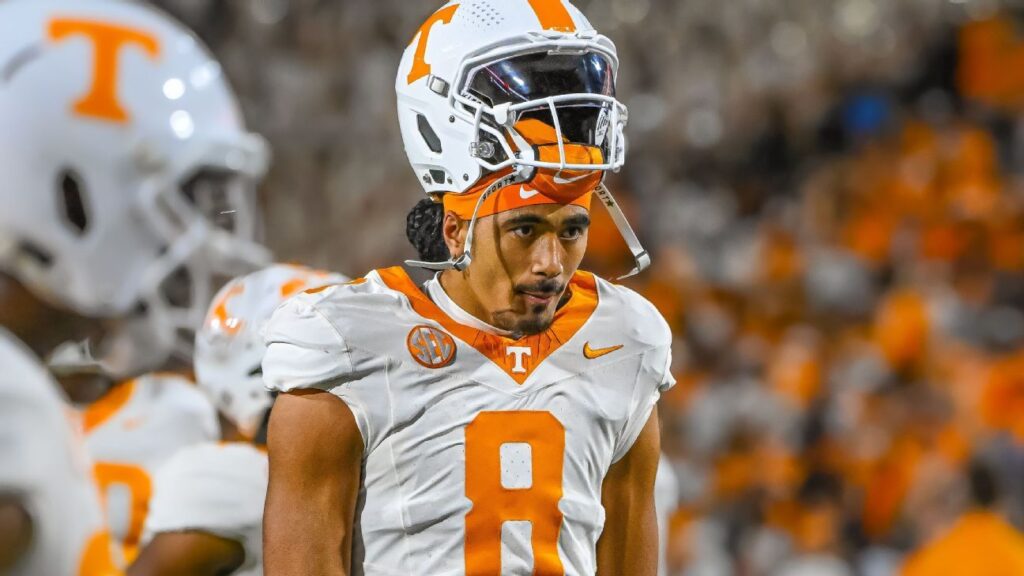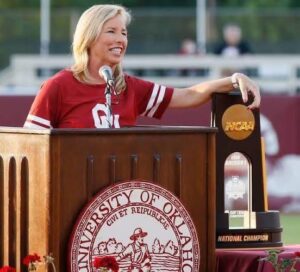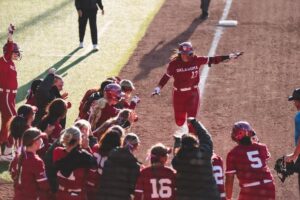
After a NIL disagreement and holdout, Nico Iamaleava’s football career at Tennessee is finished.
Nico Iamaleava’s football career at Tennessee, which began with immense expectations, has ended prematurely. The highly touted quarterback, one of the most anticipated recruits in recent memory, announced his departure from the University of Tennessee amid a dispute related to his NIL (Name, Image, and Likeness) deal. His holdout has sent shockwaves through college football, leaving questions about the changing landscape of the sport, the influence of NIL deals, and the future trajectory of Iamaleava’s career. Once a promising star with a ceiling that appeared limitless, Iamaleava’s exit from Tennessee is a cautionary tale of how financial agreements, team dynamics, and the evolving nature of college sports intersect in an era where athletes can profit from their brand.
The Rise of Nico Iamaleava
Nico Iamaleava’s recruitment was a spectacle. As a five-star quarterback out of Long Beach, California, he was ranked as the No. 1 overall recruit in the 2023 class by some major scouting outlets. He was heralded as the next big thing in college football, a transcendent talent with an arm capable of making all the throws at the highest level. Schools from across the country fought tooth and nail for his commitment, with Tennessee emerging victorious in a hard-fought battle.
Iamaleava’s decision to play for the Volunteers was celebrated not only for his football potential but also for the opportunity he brought with him to elevate Tennessee’s program. Under head coach Josh Heupel, Tennessee was already known for its high-flying offense and explosive playmaking ability, and Iamaleava was seen as the perfect fit to continue and expand upon that style of play. His skill set—strong arm, mobility, poise—was the ideal complement to Heupel’s offense, which had proven to be both efficient and dynamic in recent years.
While his football talent alone would have made him a star, it was the explosion of NIL deals that added a whole new layer of anticipation to his time at Tennessee. Iamaleava entered college at a time when the NIL landscape was still evolving but already capable of offering athletes enormous financial opportunities. The combination of his status as the nation’s top quarterback prospect and his potential for major NIL earnings had the college football world buzzing.
NIL and Iamaleava’s Financial Expectations
The advent of NIL deals has fundamentally altered college athletics, turning the spotlight on athletes not only for their performances but for their ability to leverage their personal brand. For high-profile players like Iamaleava, the opportunity to sign lucrative endorsement deals is incredibly enticing. His arrival at Tennessee wasn’t just seen as a chance to win championships—it was viewed as a business opportunity for both Iamaleava and the university.
According to reports, Iamaleava had several NIL opportunities lined up even before he officially committed to Tennessee. His name was synonymous with potential endorsement deals, and the numbers being floated were staggering. Multiple companies were reportedly eager to sign him for deals that could total millions of dollars. This new reality, however, comes with challenges. With money now in the mix, tensions can rise, and expectations often become more complicated than just playing football.
For Iamaleava, the NIL opportunities were a source of contention. Sources close to the situation revealed that the star quarterback had disagreements with the university over the details and extent of his NIL deal. Iamaleava reportedly felt that the terms of his contract did not align with his marketability and the prominence he brought to the program. Although Heupel and Tennessee athletic director Danny White publicly supported the player, behind the scenes, discussions became tense as Iamaleava’s financial situation became increasingly tied to his performance on the field.
The Holdout: A Disruption in College Football
Iamaleava’s decision to hold out and cease participation in team activities was a clear signal of his dissatisfaction. Despite being the starting quarterback for the Volunteers, Iamaleava chose to withhold his services from the team until his NIL deal was renegotiated to his satisfaction. This move was unprecedented in the world of college football, where players typically do not have the same leverage as professionals in other sports.
The idea of a college player holding out over financial matters in the NIL era is a reflection of the growing tension between amateurism and the commercialization of college athletics. For decades, athletes were required to perform without receiving compensation for their image or likeness. The NIL movement has changed that dramatically, but with change comes new challenges, especially for young athletes entering a market that is still evolving.
Iamaleava’s holdout not only disrupted the flow of Tennessee’s program but also drew a line in the sand regarding the financial expectations of college athletes. His holdout became a flashpoint for a larger debate: are student-athletes entitled to fully profit from their NIL rights, or is there a line between fair compensation and disrupting team dynamics?
The Consequences of the Disagreement
The fallout from Iamaleava’s holdout was swift. The tension within the Tennessee program was palpable, with rumors circulating that the team’s chemistry had been affected by the ongoing negotiations. Coaches, players, and fans were left uncertain about Iamaleava’s future with the team, as his departure seemed increasingly inevitable.
The Volunteers’ offense, which was once expected to be driven by Iamaleava’s talent, suddenly found itself in a state of flux. Quarterback play is one of the most important factors in determining a team’s success in college football, and with the uncertainty surrounding Iamaleava, the team’s preparation for the upcoming season was thrown into disarray. Backup quarterbacks, who were originally seen as contributors in supporting roles, were now thrust into the spotlight as potential starters.
In the broader context of college football, Iamaleava’s decision to step away from the program marked a tipping point in the NIL era. It illustrated the high stakes involved when large sums of money are on the table, and it raised important questions about the balance of power between athletes, coaches, and universities. Iamaleava’s exit served as a reminder that, while the NIL revolution has given athletes greater freedom, it has also created a volatile environment where the personal and financial interests of players can overshadow team goals.
The Future of Nico Iamaleava
Nico Iamaleava’s departure from Tennessee marks the end of his collegiate career, but it is far from the end of his journey as a football player. With his immense talent, he remains one of the most highly sought-after prospects in football. Whether or not he decides to enter the NFL draft remains to be seen, but his time at Tennessee has positioned him as a player with significant potential in the professional ranks.
However, his time at Tennessee will forever be remembered as a cautionary tale about the challenges and complexities that come with the commercialization of college athletics. Iamaleava’s holdout and subsequent exit were not solely about money but also about the power dynamics that come with being a college athlete in an age where the lines between amateurism and professionalism have blurred.
Moving forward, Iamaleava will need to focus on re-establishing his reputation and rebuilding his career. Whether he takes his talents to the professional level or opts for another route, his story will undoubtedly influence future athletes who find themselves in similar situations. For now, the once-promising football career at Tennessee is over, and Iamaleava’s future is uncertain. But one thing is clear: his departure from Tennessee will be a defining moment in the history of college football and NIL agreements.
The Bigger Picture: The NIL Era’s Impact on College Football
Nico Iamaleava’s situation highlights the complexities of the NIL era and how it affects not only players but entire programs and the culture of college sports. As more and more athletes sign lucrative deals, the pressure to perform, manage relationships with universities, and navigate the business side of sports will only increase. For future recruits, Iamaleava’s story serves as a reminder of the potential pitfalls in a landscape that promises both wealth and risk.
College football programs will now be forced to consider how they navigate these new financial realities, balancing the needs and desires of their players with the traditions and expectations of their respective teams. The pressure on both athletes and coaches is likely to continue growing, and the influence of NIL deals will only become more pronounced in the years to come.
For Nico Iamaleava, his journey is far from over, but his legacy at Tennessee will be marked by the intersection of talent, money, and ambition. His story is a glimpse into the future of college football—a future where the balance of power may lie as much with the athletes as with the coaches and administrators who run the programs.





